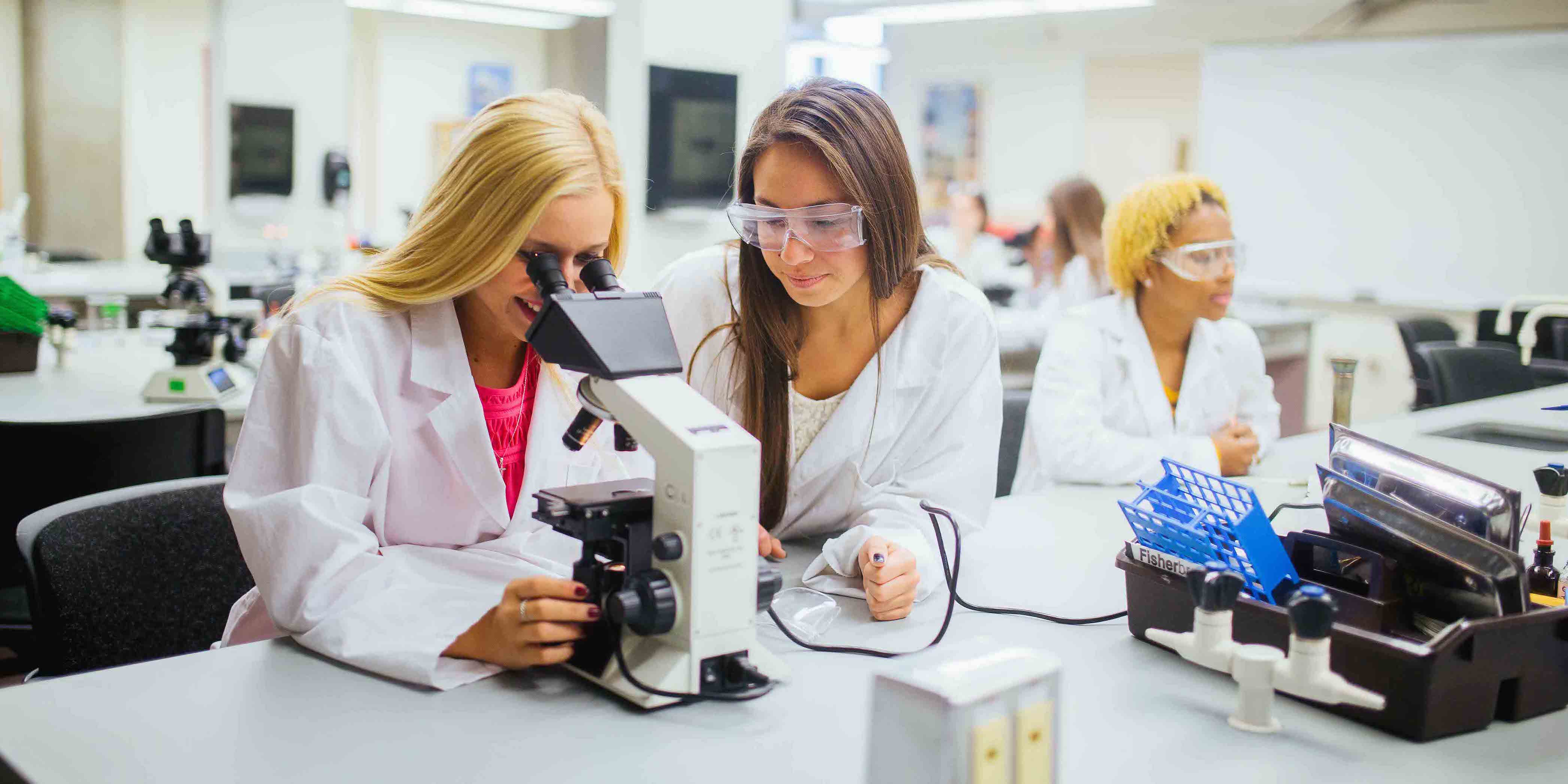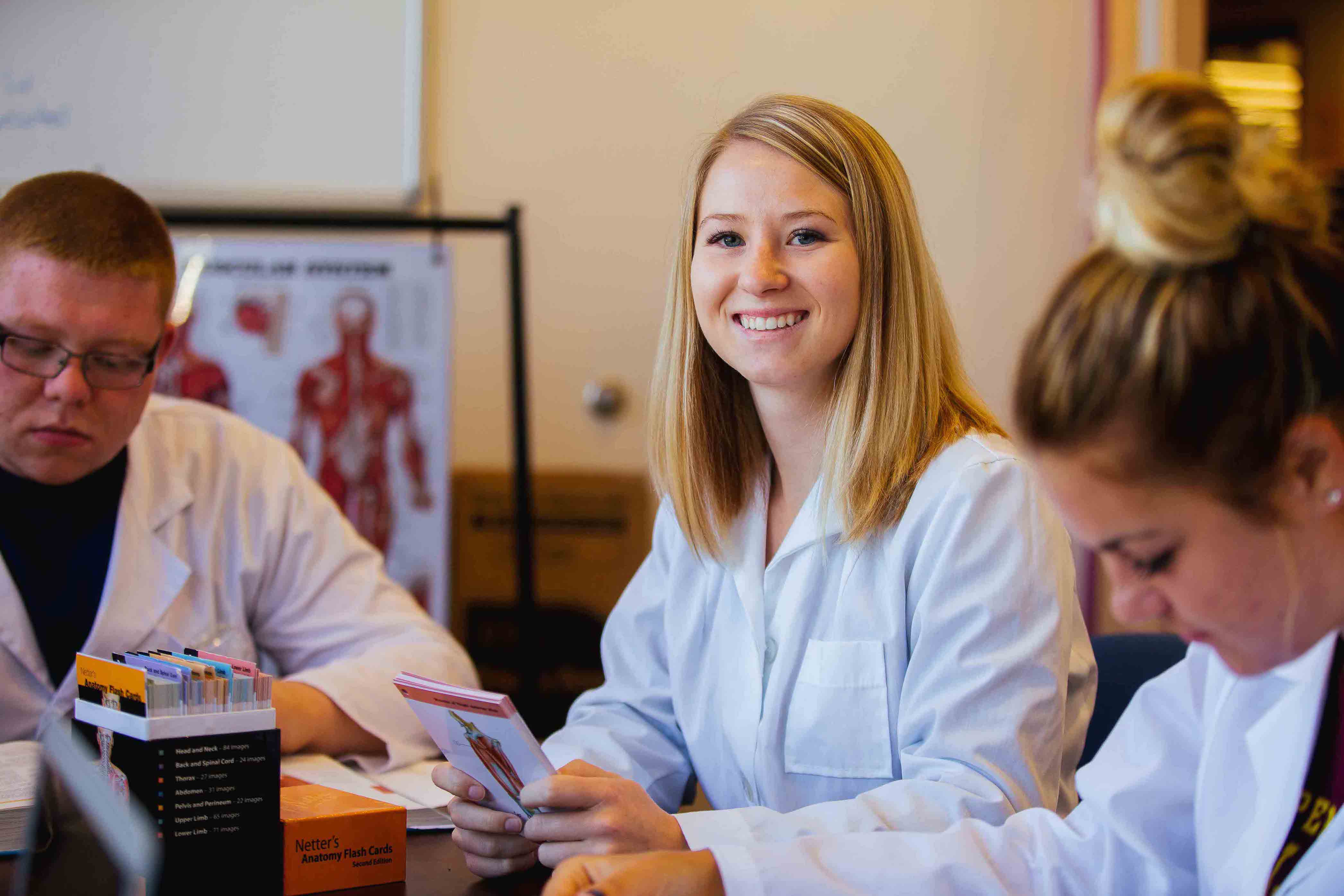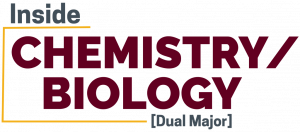
Chemistry/Biology – Dual Major
-
duration
4 Years
-
format
In-Seat
-
location
Charleston
Program Overview
This major offers a dual major in biology and chemistry. The program consists of interdisciplinary study areas within Biology and Chemistry.. You will also participate in undergraduate research encompassing several different areas.
This program is designed to educate you about the nature of chemistry, biology, and biochemistry, and to prepare you with the knowledge and skills to succeed in graduate studies or studies in the health professions. By the end of the program, you will possess strong skills in applying scientific principles and methodologies. This degree combination, along with undergraduate research experience, enhances graduates’ competitiveness for professional school admissions.



Freshman applicants with a 2.5 or higher high school GPA and transfer students with a 2.0 or higher cumulative college GPA are eligible for general admission to UC, and will gain entry into this program. Students may apply online or download the admissions application.

STEM Optional Practical Training programs are recognized by the U.S. government as beneficial to students and employers. Through these programs, international students gain essential, in-demand skills, and can extend their 12 month OPT an additional 24 months.
Program Highlights
-
This program is active in research opportunities and opportunities to work closely with faculty members with experience in industry, academia, and medicine.
-
State-of-the-art lab facilities and instrumentation.
-
Opportunities to join science organizations like ACS Affiliates and Chi Beta.
-
Opportunities to present research at scientific meetings and to publish in peer-reviewed journals.
-
Internship opportunities within the West Virginia INBRE Program.
Program Outcomes
-
Career Opportunities
Career options include:
- Biochemistry
- Forensic Science
- Medicine
- Pharmacy
- Public Health
- Research
-
Graduate/Professional School Preparation
Faculty-led review sessions for:
- DAT
- GRE
- MCAT
- PCAT
- Other graduate entrance exams
Opportunities for Taking Your Degree Further
Chemistry-Biology is a strong foundation for many careers. If you are considering using your degree for a career in pharmacy or as a physician assistant, why not stay right here? UC offers a Physician Assistant Program, so you can stay at a school you know while preparing for a great future. Learn more about our Physician Assistant Program. Stay at UC and take your degree further.
UC is one of a select number of West Virginia schools partnering with the WV School of Osteopathic Medicine in its Pre-Osteopathic Medicine Program (POMP). The program provides a pathway for students who successfully complete program requirements to receive a guaranteed acceptance to WVSOM. Learn more here.
Additional Information
What is the difference between a dual major versus a dual degree?
With a dual major, a student earns a single degree (e.g. Bachelor of Science (BS)) in two subject areas (e.g. biology and chemistry). In a dual degree program a student earns two different degree types while pursuing multiple subject areas (e.g. BS in Biology and Bachelor of Arts (BA) in Psychology).
What are the advantages of the dual major program?
Students participating in the dual major program gain a well-rounded education in the two disciplines simultaneously, which allows them to gain a deeper understanding of various interdisciplinary concepts and how they relate to each other. Additionally, upon completion of the dual degree program, graduates will stand out from their peers with an enhanced skill set.
What are some common classes I can expect to see when earning this degree?
While pursuing a dual degree in chemistry and biology, students can expect to take courses such as General Chemistry (I-II), Organic Chemistry (I-II), Quantitative Analysis, Instrumental Analysis, Biochemistry, Proposal Writing in Chemistry, Research in Chemical Science, Human Anatomy, Microbiology, and Genetics.
Can I tailor my coursework to focus on a specific area of interest within the intersection of chemistry and biology?
Yes, you can tailor your coursework and minor(s) to focus on a particular area of interest that will best suit your specific career path.
What career paths could be possible to graduates with a dual major in chemistry and biology?
Graduates with a dual major in chemistry and biology will have many opportunities available to them in careers such as Biochemistry, Forensic Science, Medicine, Pharmacy, Public Health, Research, and more.
Can I pursue advanced degrees, such as a Master’s or Ph.D., with a dual major in chemistry and biology?
Yes, our chemistry and biology dual major program will prepare you for future academic endeavors in this field. This program offers students benefits such as Graduate/Professional School Preparation, and Faculty-led review sessions for:
- DAT
- GRE
- MCAT
- PCAT
Other graduate entrance exams
How long does it take to complete the dual degree program?
The Program consists of 40 credits of required chemistry courses, 32 credits of required and elective biology courses, 20 credits of required mathematics and physics courses, 3 credits in the Natural Science Sequence, and about 27 credits of General Education. The degree generally takes 4 years to complete.
Undergraduate research for this degree program encompasses one or more of the following areas:
- Analytical chemistry research – Using chemical instrumentation to analyze environmental and consumer product samples
- Biochemistry research – Ligand binding to heme proteins and analysis of biological consequences
- Inorganic chemistry research – Spectroscopic characterization of oxometal (oxygen-containing) cations in strongly acidic media
- Synthetic organic chemistry research – Hydrocarbon C-H bond activation by inorganic cations and related organic functionalization leading to the synthesis of industrially critical organic compounds
- Water quality research – Determining levels of contaminants in West Virginia surface waters
Meet the Faculty
Meet the Faculty

Chemistry Program Co-Director
Bio-Chem Program Director
Professor of Chemistry
